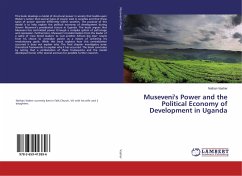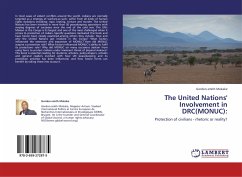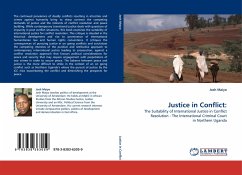This book develops a model of structural power in society that builds upon Weber's notion that several types of power exist in societies and that these types of power operate differently within societies. The purpose of this model is to help explain the political economy of development during Yoweri Museveni's presidential tenure in Uganda. The book argues that Museveni has centralized power through a complex system of patronage and repression. Furthermore, Museveni's transformation from the leader of a cadre of 'new breed leaders' to 'just another African big man' results from his choice to centralize power as a means of achieving his revolutionary goals. While this book explains how this centralization occurred it does not explain why. The final chapter investigates some theoretical frameworks to explain why it has occurred. The book concludes by noting that a combination of these frameworks and the model developed herein offer several avenues for possible further research.
Bitte wählen Sie Ihr Anliegen aus.
Rechnungen
Retourenschein anfordern
Bestellstatus
Storno








